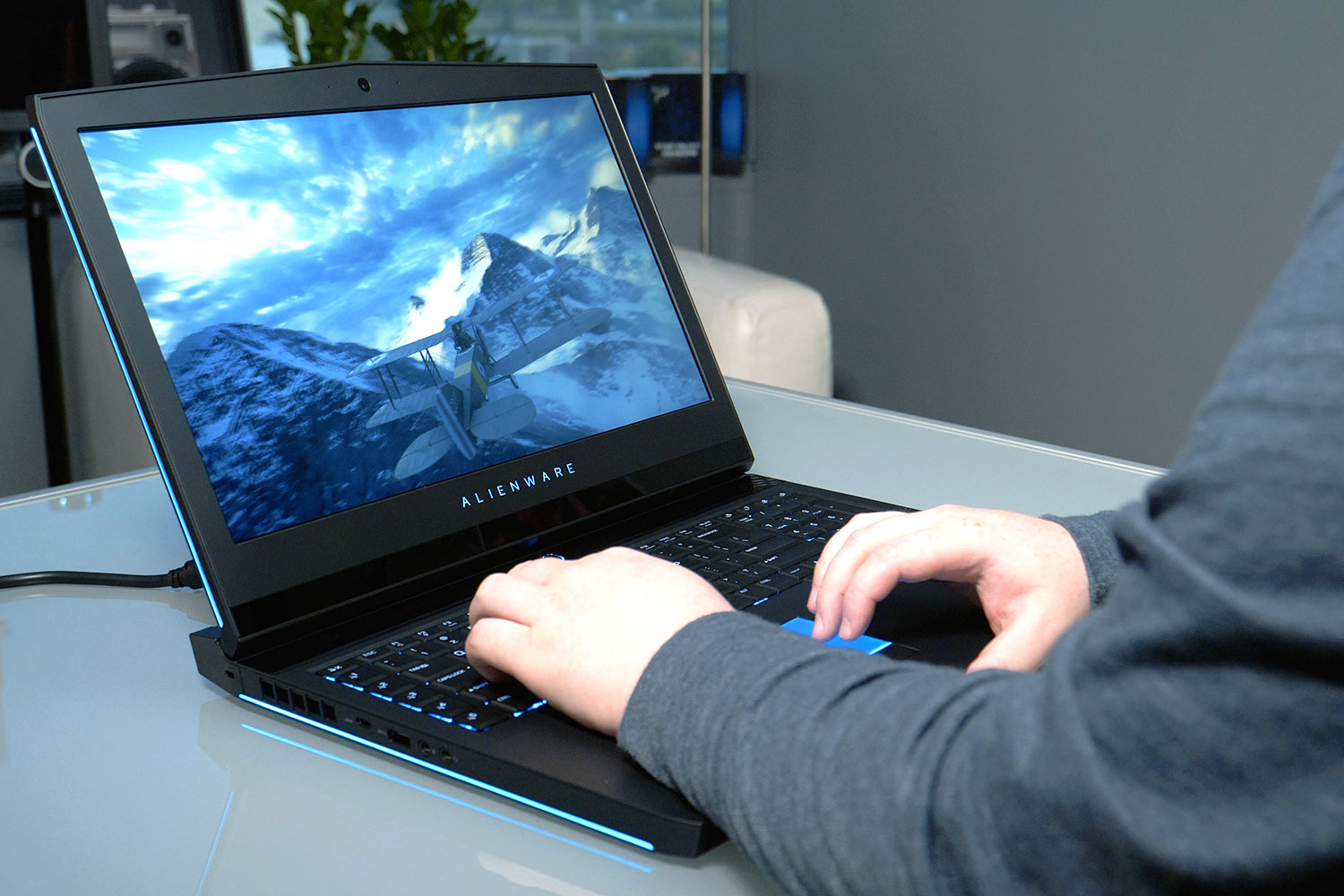
Intel’s new Core i9 processors are unbelievably fast. During our time with the Alienware 17 R5 laptop, and the Alienware Area-51 R5 desktop, we were very impressed with both the mobile and desktop Core i9, and their ability to handle complex workloads in record time. But there’s an important distinction between the mobile and desktop versions of these processors. They’re not really in the same league.
The desktop version of the Core i9 is an 18-core behemoth, while the mobile version is a six-core processor, like its Core i7 brethren. So why isn’t it just called a Core i7? There’s a reason, but it’s not a good one.
Understanding the naming scheme
When you’re shopping for a processor, desktop or laptop, the designation — Core i3, Core i5, Core i7 — serves as a shorthand for performance.
Intel’s latest 8th-generation Core i3 processors feature four cores, but no hyperthreading — so you’ll only get a max of four processing threads instead of the eight you’d get if it had hyperthreading support. Similarly, Core i5 chips come in at six cores, six threads. At the top, the Core i7 chips now pack six cores and 12 threads.
The Intel Core i9-8950HK has more in common with a top-end Core i7 processor than it does with other chips in the i9 range.
These figures vary a bit between individual chips, but for the most part they’re consistent across product lines — mobile and desktop versions are typically within striking distance of each other. It’s a roadmap that’s easy to navigate, and the product names clearly communicate where they stand in relation to each other.
The introduction of the new mobile Core i9 short circuits that simplicity.
Here’s the problem: The Core i9-8950HK has the exact same number of cores and threads as the Core i7-8750H, making its name feel a little disingenuous. Every other naming jump is associated with an increase in cores or threads (or both), but here — it’s not. The Core i9 is certainly a faster chip, with a base clock speed of 2.90Ghz and a max speed of 4.80Ghz, but it’s got the same number of cores and threads.
Calling it a Core i9 feels like a misnomer
Comparing it to the desktop Core i9, which features a whopping 18 processor cores, makes that disparity even more apparent. Now obviously an 18-core mobile processor would obliterate all but the largest batteries in a laptop — and would probably require an unreasonable amount of cooling. The problem here isn’t the processor, it’s the marketing. The mobile Core i9 is good, great even. But why call it an i9?
We fell for the marketing ourselves when we saw the Alienware 17 R5 featured an 8th-generation Intel Core i9 processor. We had high expectations after reviewing the Alienware Area-51, a gaming machine that used the desktop Core i9. Despite the Alienware 17 R5 ending up being our favorite gaming laptop, we were disappointed to find out that it wasn’t a true Core i9. Again — it’s still an incredibly impressive chip — but we couldn’t help but feel a bit misled.

The truth is the Intel Core i9-8950HK has more in common with a top-end Core i7 processor than it does with other chips in the i9 range. Putting a Core i9 sticker on something doesn’t make it a faster processor any more than slapping a Bugatti bumper sticker on your Honda Civic makes it a supercar.
It’s unfortunate because otherwise the mobile Core i9 is an excellent processor. It doesn’t need the crutch that this kind of marketing trickery provides, it stands on its own and performs exceptionally well. Giving it a name that isn’t in line with its performance or capabilities undermines confidence in Intel’s other product lines, and it’s just not necessary.


